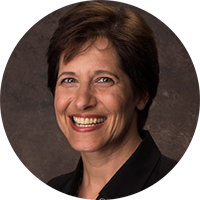Apr 25 2023
Playful Learning Journey: The What and Why of Playful Learning
April 25, 2:00 pm ET
Resources
- William Penn Foundation Presentation
- Brookings Institution Presentation
- Playful Learning Landscapes Playbook
- Brookings Institution Metrics Framework
- William Penn Foundation's Playful Learning Work
- Play Streets
- Play Everywhere Philly
- Too Small to Fail Laundromats
- SEPTA Transit Campaign
- Intergenerational Opportunities for Playful Learning
- Playful Learning Landscapes City Network
- More city examples
Only 20% of a child’s waking time is spent inside a classroom. How do we make the best use of the other 80% to foster child development and learning? One proven approach is to embed fun and interactive learning opportunities in places where families naturally congregate in their communities such as laundromats, public transportation, parks, and other public spaces. Join this webinar for an introduction to playful learning. As the first activity in our Playful Learning Journey, we’ll learn what playful learning is, the science behind it and the outcomes that can be achieved, especially in service of diversity, equity and inclusion. We’ll hear about one community’s success story, including the role of an engaged funder, and learn what it takes to start your own playful learning projects.
About the Playful Learning Journey
Join Grantmakers for Education, William Penn Foundation, The Grable Foundation, and the Brookings Institution on a journey to learn about playful learning: the science, the outcomes, and the promise it holds for advancing diversity, equity, and inclusion. Playful learning seeks to augment the education that takes place in schools by transforming everyday places such as bus stops, supermarkets, and parks into fun and interactive learning opportunities for children and families. We’ll explore examples of successful community collaborations and dive into the role funders can play in advancing this unique approach to making out-of-school learning relevant, engaging, and accessible for our youngest learners and their caregivers.
On this journey, we’ll offer two webinars (The What and Why of Playful Learning on April 25, and How Funders Can Embrace Playful Learning on May 22), as well as other learning opportunities, including engagement at the EdFunders annual conference. More details to come.
This event is intended for members and other education grantmakers.
There is no cost to attend this Grantmakers for Education program. Registration closes 15 minutes prior to the program time. Thank you for your patience; we review each registration in advance.
REGISTER FOR EVENT ❯About the Speakers

Amanda Charles
Interim Program Officer; Senior Program Associate
William Penn Foundation
Amanda is a program associate in Great Learning, with a grantmaking portfolio focused on building literacy rich environments for our youngest learners – opportunities for children to build literacy skills outside of schools and early childhood education centers. Previously, Amanda worked as a child care specialist with the Arlington County Government in Virginia, balancing caseload management of child care facilities while working collaboratively to improve program quality.
Amanda holds a master’s degree in education from the University of Pennsylvania and a bachelor’s degree in education from Bloomsburg University of Pennsylvania, where she majored in elementary and special education.

Dr. Kathy Hirsh-Pasek
Faculty Fellow – Department of Psychology; Senior Fellow
Temple University; Brookings Institution
Kathy is the Stanley and Debra Lefkowitz Faculty Fellow in the Department of Psychology at Temple University and a Senior Fellow at the Brookings Institution. Her research examines the development of early language and literacy as well as the role of play in learning. With her long-term collaborator, Roberta Golinkoff, she is author of 14 books and hundreds of publications. She is the recipient of the AERA Outstanding Public Communication for Education Research Award, the American Psychological Association’s Bronfenbrenner Award, the American Psychological Association’s Award for Distinguished Service to Psychological Science, the Association for Psychological Science James McKeen Cattell Award, the Society for Research in Child Development, Distinguished Scientific Contributions to Child Development Award, the APA Distinguished Lecturer Award, and the Simms/Mann Whole Child Award. She is a Fellow of the Cognitive Science Society, the American Psychological Association, the American Psychological Society, and AERA. She is the Past President of the International Society for Infant Studies and served as the Associate Editor of Child Development. In 2021, she was elected as a member of the National Academy of Education. She is on the advisory board for Nickelodeon, Vroom, the Boston Children’s Museum, Disney Junior, and Jumpstart. She is also an advisor to NCECDTL Research to Practice Consortium that advises Head Start and is the co-developer of the QUILS Quick Interactive Language Screener that assesses early language competence in 3- through 5- year olds in English and Spanish.
Kathy is committed to translating current work in the science of learning for professional and lay audiences. To that end she pioneered global initiates like Playful Learning Landscapes and was on the founding committee of the Latin American School for Educational and Cognitive Neuroscience. Her book, Einstein never used Flashcards: How children really learn and why they need to play more and memorize less (Rodale Books) won the prestigious Books for Better Life Award as the best psychology book in 2003. Her book, Becoming Brilliant: What the science tells us about raising successful children, released in 2016, was on the NYTimes Best Seller List in Education and Parenting. Read Kathy’s newest book Making Schools Work: Bringing the Science of Learning to Joyful Classroom Practice (2022), co-written by teachers, school administrators and scientists to bring about joyful teaching and deeper learning. Kathy received her bachelor’s degree from the University of Pittsburgh and her Ph.D. from the University of Pennsylvania and is a frequent spokesperson for her field appearing in the NYTimes, NPR and in international television outlets.

